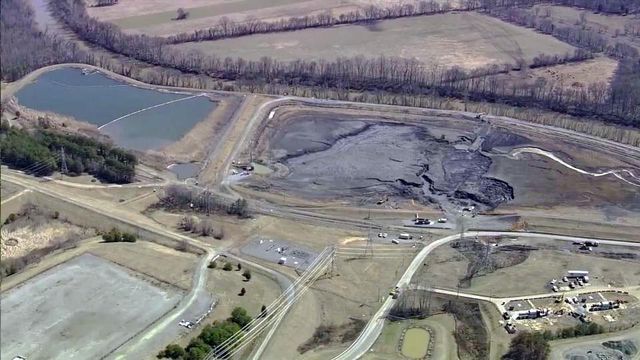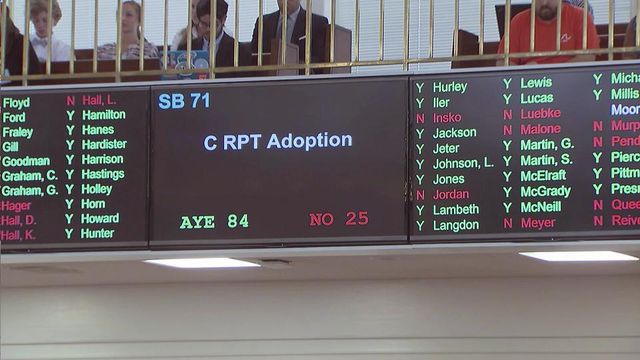Coal ash cleanup plan heading to expected veto
A bill that would reconstitute a commission designed to oversee coal ash cleanup in the state is heading to Gov. Pat McCrory, who has already vowed to veto it.
Posted — UpdatedUnder the final version of the bill, which cleared the House and the Senate on Tuesday, Duke Energy will be required to provide permanent alternative water sources or filtration systems for all wells within a half-mile of its 33 coal ash ponds across North Carolina.
Sponsor Rep. Chuck McGrady, R-Henderson, said affected homeowners will not have to prove that toxins in their wells came from the ash ponds, many of which have been leaking into groundwater for years.
"That's a really significant thing that is occurring here. We're doing something that the law, up till now, would not allow us to do," McGrady said.
According to Duke, more than 900 wells are now covered by the law. The company contends that many of the chemicals found in the well water are naturally occurring and not attributable to the ash ponds.
McGrady said the legislation should ease the concerns of hundreds of well owners who received conflicting information from the state about whether their well water had dangerous levels of cancer-causing hexavalent chromium.
"If you got a letter, with the exception of I believe nine households in Rep. Kyle Hall's district (in Stokes County), you will now get water regardless of whether your water has that chemical in it in high proportions or not," McGrady said.
The Stoke County homes fall outside the half-mile radius from Duke's Belews Creek Power Station.
"Although science and engineering studies continue to demonstrate that basins are not impacting neighbors’ wells, extending water lines, where appropriate, benefits all customers because it preserves the full range of cost-effective ash basin closure options," Duke spokesman Jeff Brooks said in a statement.
Brooks Rainey Pearson, a staff attorney with the Southern Environmental Law Center, which has sued to push for coal ash cleanup, pointed out the rest of the bill gives Duke a chance to persuade lawmakers not to require the company to dig up all of its ash.
State regulators recently designated all ash ponds statewide as high or intermediate risks, and under a 2014 law, that requires that the ash be excavated and moved to a lined landfill. But the new legislation would give the reconstituted Coal Ash Management Commission the final say on the status of each ash pond.
If the commission deems some ponds as low risks, Duke could simply cover them and leave the ash in place.
Pearson praised the water provision but said it should have been run as a standalone bill.
"(They're) tying it to a larger bill, the majority of which creates delay for Duke Energy in cleaning up the very pollution that is causing the contamination of the drinking water and surface water and groundwater throughout the state," she said.
McCrory shut down the Coal Ash Management Commission early this year after winning a legal battle with legislative leaders. The state Supreme Court said lawmakers were exercising too much control over the commission, which carries out an executive branch duty.
The governor continues to criticize the notion of resurrecting the commission.
"This legislative vote is not good for our environment or for the rule of law in North Carolina," he said in a statement.
Lawmakers have enough votes to override a veto.
Related Topics
• Credits
Copyright 2024 by Capitol Broadcasting Company. All rights reserved. This material may not be published, broadcast, rewritten or redistributed.






